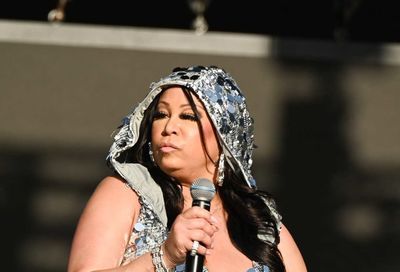Five years after passing anti-trans “bathroom bill,” North Carolina lawmakers introduce anti-trans sports bill
"Save Women's Sports Act" would mandate sex-segregated sports in middle and high schools in North Carolina.

Five years to the date that lawmakers passed the infamous “bathroom bill” that created a major economic backlash in the state, the North Carolina House of Representatives has introduced yet another anti-transgender measure.
This time, lawmakers are targeting transgender student-athletes by seeking to bar them from competing in sports based on their gender identity.
HB 358, known as the “Save Women’s Sports Act,” would bar middle and high school students from participating in interscholastic or intramural sports from competing based on their gender identity.
It would segregate sports into men’s, women’s and coed or mixed categories, and would recognize a person’s sex based “solely on a person’s reproductive biology and genetics at birth.”
The bill prohibits any governmental entity, school, or athletic association from being sued for maintaining separate athletic teams or sports specifically designated for females.
It also allows any cisgender female athlete who believes she has been “deprived of an athletic opportunity” due to the participation of trans athletes, or who experiences retaliation for complaining about the inclusion of trans athletes on sports teams, to sue for damages within two years of the alleged “harm” she suffered.
Much like the infamous HB 2 “bathroom bill,” the premise of the “Save Women’s Sports Act” is based on misunderstandings about what it means to be transgender, and the assumption that transgender people’s mere existence is a threat or hindrance to cisgender women.
Following the passage of HB 2 in 2016, North Carolina experienced significant economic blowback. Over 200 major business leaders condemned the bill, several musical artists canceled concerts, and several groups and organizations canceled conferences that were scheduled to be held in the state.
PayPal CEO Dan Schulman announced that the company was scuttling plans to build a global operations center in the state, the NBA relocated its All-Star Game from Charlotte to New Orleans, and the NCAA yanked seven different sports championships in protest of the bill’s targeting transgender individuals.
The Associated Press even projected that HB 2 could have cost the state nearly $3.76 billion over a 10-year period.
“In a moment of sad irony, North Carolina legislators have shown they clearly did not learn their lesson from the HB 2 ‘Bathroom Bill’ fight that threatened the state to the tune of billions in revenue, taxpayer-funded litigation, and a tarnished reputation — in addition to the personal reputational harm Gov. Pat McCrory suffered that cost him his job,” Kate Oakley, state legislative director and senior counsel for the Human Rights Campaign, said in a statement. “By introducing an anti-transgender sports ban bill, they are playing with fire once again, and engaging in a fight that is doomed to the same fate.”
Oakley continued: “This legislation is simply the latest iteration in a failed series of attempts to thwart equality for LGBTQ people. Two conservative governors have either threatened to veto or vetoed anti-transgender sports ban legislation out of the same fears that were realized in North Carolina five years ago.
“Let North Carolina’s ‘bathroom bill’ fight be a lesson to all states and governors considering anti-transgender legislation this session,” Oakley added. “North Carolina does not want to go down this road again.”
See also: South Dakota lawmakers approve bill to ban transgender athletes from women’s sports
The Save Women’s Sports Act is one of nearly 40 bills introduced in more than two dozen legislatures this year that seeks to bar transgender athletes from competing in women’s athletics.
Mississippi’s governor recently signed a ban into law, and the governors of Tennessee and Arkansas appear poised to as well. Idaho passed a similar law last year, but a federal judge blocked it from taking effect.
In addition to conflicting with current NCAA policy regarding transgender participation in athletics, the bills introduced this cycle are being opposed by various corporations, including Facebook, Pfizer, Altria, Peloton, Dell, Amazon, American Airlines, Airbnb, Google, IKEA, Nike, and Verizon, which issued a statement earlier this month denouncing the bills.
In addition, the bills have been opposed by major child health and welfare groups representing more than 7 million youth-serving professionals, and nearly 550 college athletes who signed a letter to NCAA President Mark Emmert demanding that the collegiate sports organization pull championships and tournaments from states that pass legislation targeting transgender student-athletes.
In a statement to North Carolina Policy Watch, Equality NC, the statewide LGBTQ rights organization, said the bill targeting trans athletes was “rooted in invasive and inappropriate questions about the sex assigned to young people at birth and outdated generalizations about male and female bodies.”
“Now that gay, lesbian, and bisexual people have achieved a baseline level of cultural acceptance in America, anti-LGBTQ politicians have moved on to a more vulnerable target: our transgender brothers, sisters, and siblings,” James Michael Nichols, the communications director at Equality NC, said in a statement.

“Trans people have always been at the forefront of the fight for LGBTQ rights and acceptance and borne the brunt of violence, discrimination, and targeted attacks against our community,” he added. “Now, politicians want to limit the ability of young, trans folks to experience camaraderie and teamwork at a crucial developmental stage of life. It’s up to all LGBTQ people to show up for trans youth right now when they need us most.”
Allison Scott, the director of impact and innovation at the Campaign for Southern Equality, argued that the “Save Women’s Sports Act” is out of touch with the way North Carolinians view the LGBTQ community, and lamented that some politicians have latched onto the bill as a way to score political points.
“The truth is that transgender youth deserve the same access as any other student to the many benefits of participating in school sports, including the physical, social, and emotional impacts,” Scott told North Carolina Policy Watch. “To categorically deny transgender students the freedom to play alongside their peers is at odds with lawmakers’ duties to care for and protect our youth.
“To all of the transgender youth feeling attacked by this bill and others like it nationwide, I want to be sure you understand that you are loved, you are seen, and we are fighting with you.”
Read more:
Boulder shooting suspect had a history of anti-LGBTQ comments
LGBTQ students at Christian colleges more likely to experience harassment than their peers
Minnesota school district to pay $300,000 to transgender student barred from boys’ locker room
Support Metro Weekly’s Journalism
These are challenging times for news organizations. And yet it’s crucial we stay active and provide vital resources and information to both our local readers and the world. So won’t you please take a moment and consider supporting Metro Weekly with a membership? For as little as $5 a month, you can help ensure Metro Weekly magazine and MetroWeekly.com remain free, viable resources as we provide the best, most diverse, culturally-resonant LGBTQ coverage in both the D.C. region and around the world. Memberships come with exclusive perks and discounts, your own personal digital delivery of each week’s magazine (and an archive), access to our Member's Lounge when it launches this fall, and exclusive members-only items like Metro Weekly Membership Mugs and Tote Bags! Check out all our membership levels here and please join us today!




























You must be logged in to post a comment.